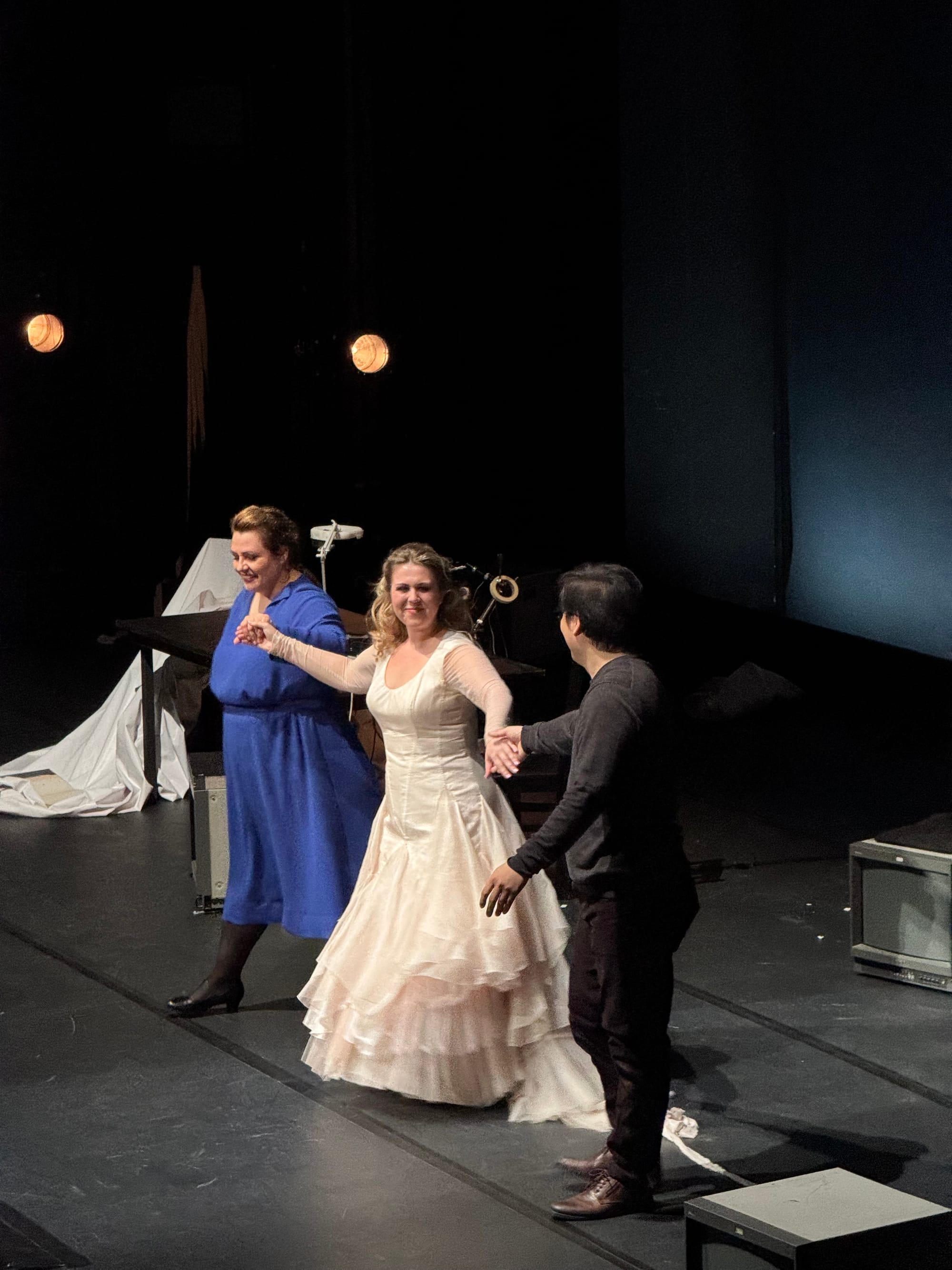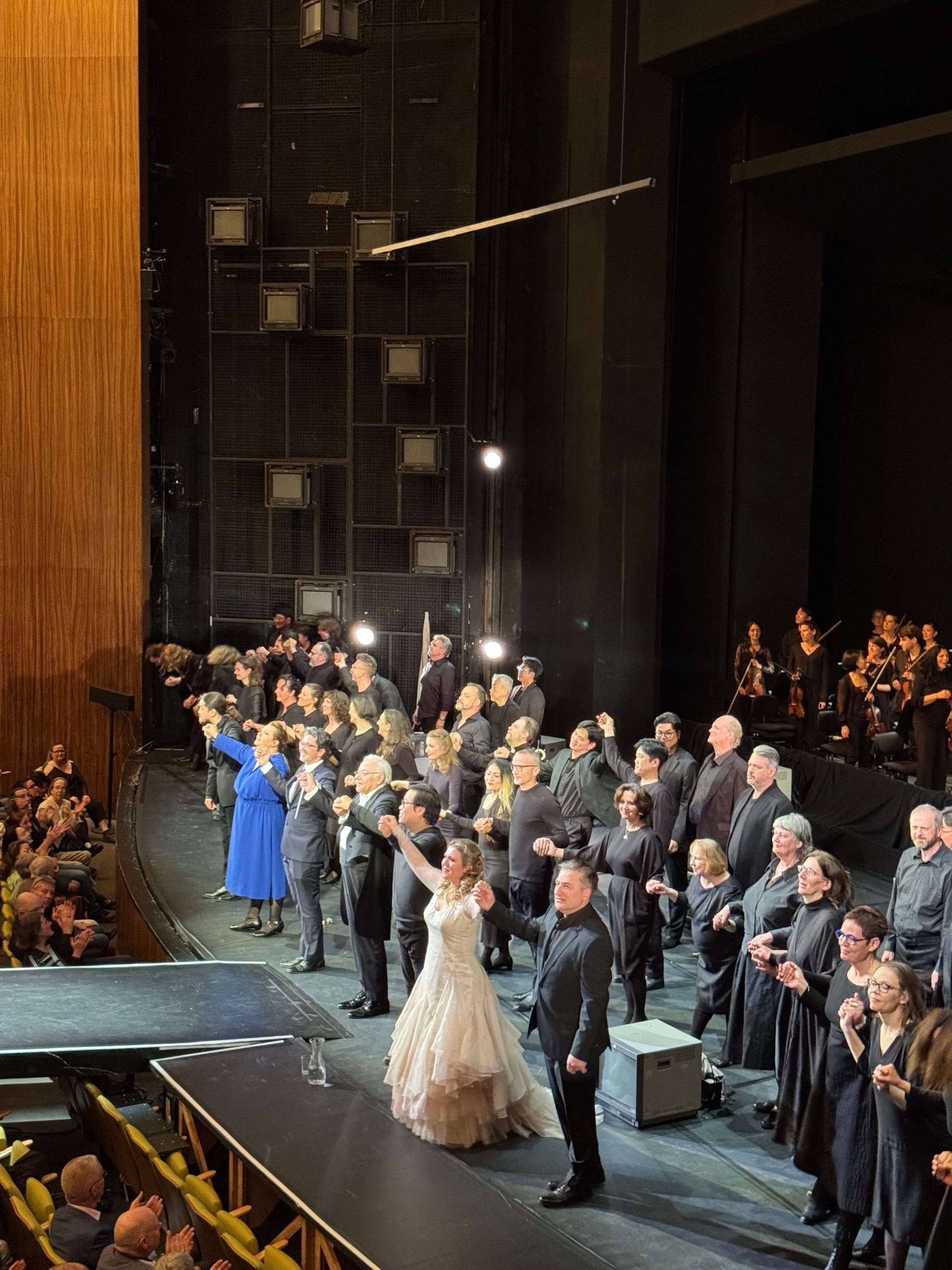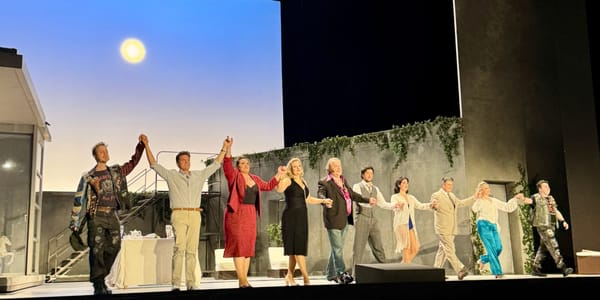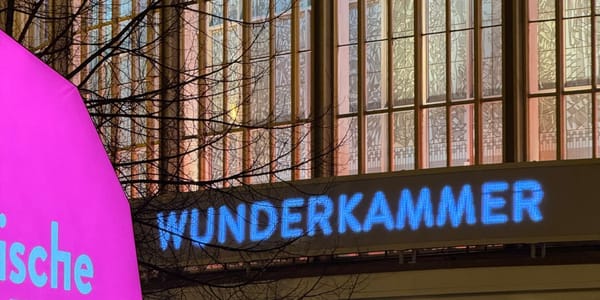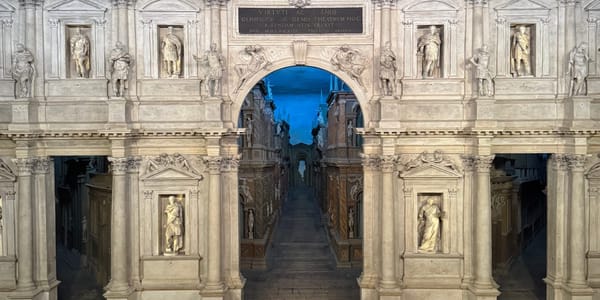Aida at Deutsche Oper Berlin
A haunting, immersive Aida where memory eclipses reality and love unravels in silence—Verdi reimagined as an intimate, fractured contemporary drama.
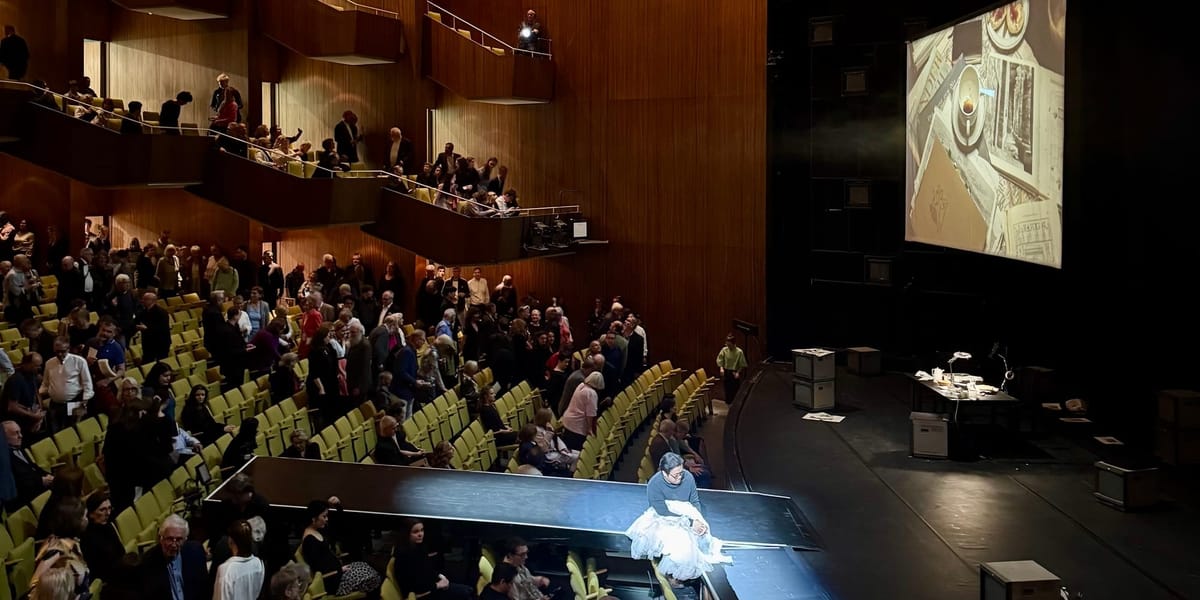
🎭 Aida
🎶 Giuseppe Verdi, 1871
💭 Benedikt von Peter, 2015
🏛️ Deutsche Oper Berlin
🗓️ 11.05.2025
“TODAY WE ARE STRUCK DOWN BY FATE, BUT TOMORROW FATE MAY STRIKE AT YOU!“
It’s Aida, and yet—it’s not. At Deutsche Oper, this latest staging of Verdi’s Egyptian tragedy offers a radical deconstruction that both reveres and refuses the original. The music remains—and what a sonic feast it is: a raumfüllendes Klangerlebnis, filling every corner of the space with a Verdi that lives and breathes in 360 degrees. Choirs are scattered among the audience, in the stalls and along the balconies. The Pharaoh and High Priest appear not on stage but perched where one might expect the royal box in an opera house of old. A narrow pier juts into the audience like a fashion catwalk, breaking down the fourth wall entirely, and the orchestra is perched on stage behind a translucent sheer curtain. If 19th-century audiences dreamed of opera as total sensory immersion, this production comes as close as we’ve ever been to realizing that dream.
But while the sound is unmistakably Aida, the story is something else entirely. What unfolds on stage is not a tale of ancient Egypt, nor even a straightforward retelling of Verdi’s libretto. Instead, we seem to witness the dissolution of a contemporary relationship. “Radames” is a man obsessed with a lost or imagined love, Aida—represented only by a wedding dress, a memory, a ghost. His present partner, “Amneris,” struggles visibly with his withdrawal and silence. Is Aida a real woman who died? A former lover he can’t let go of? Or simply an idea—an embodiment of desire, escape, the past? We never find out. The opera’s plot becomes allegory, refracted through a modern emotional lens.
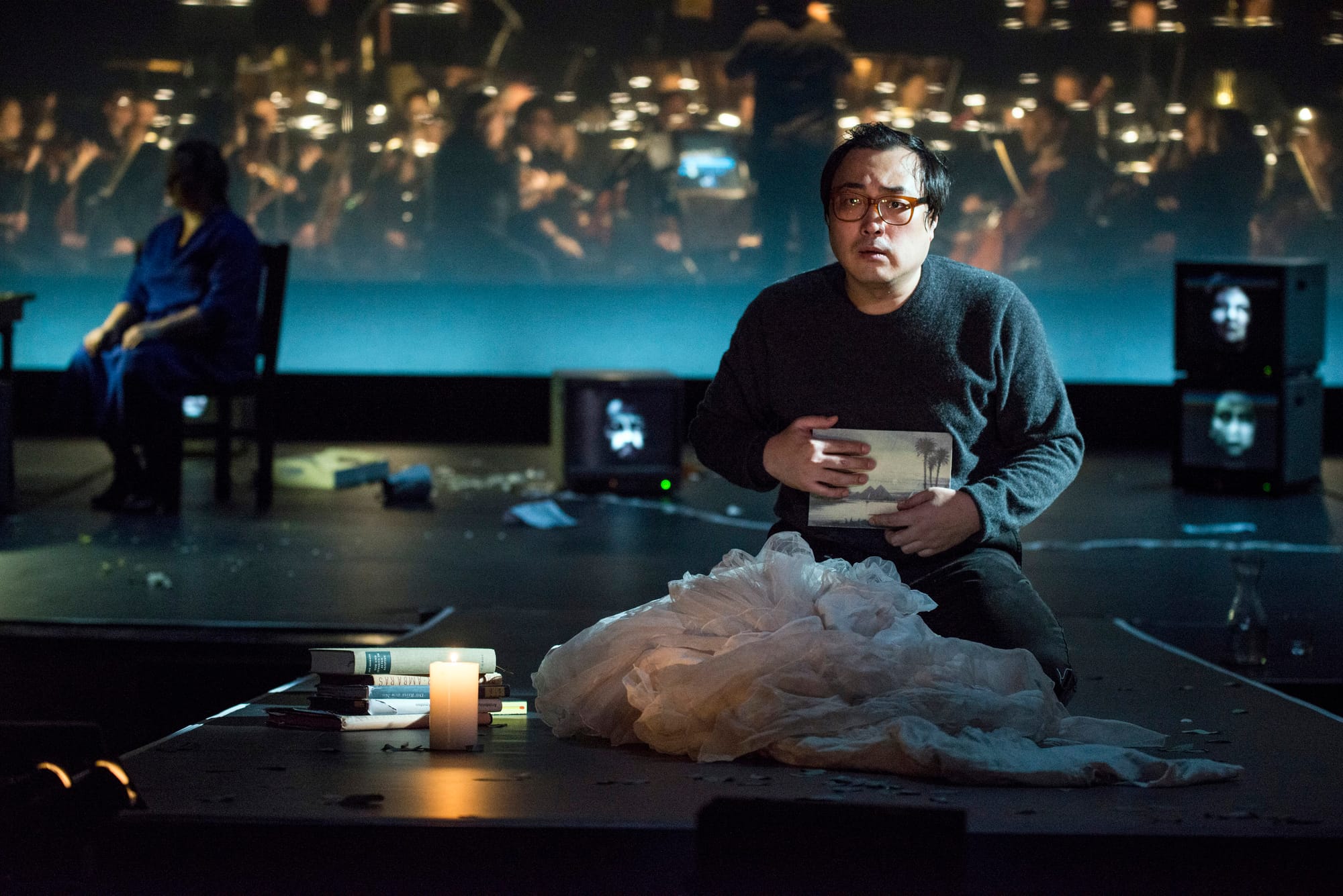
Egypt itself exists only as scholarly fascination. Books, photographs, and academic ephemera litter a desk, examined obsessively by Radames and the others, their contents projected above the stage like museum artifacts. As the relationship frays, Amneris clutches at any thread to keep it intact, while Radames retreats into this intellectual Egypt—a world of study, detachment, and control. Busy hands, quiet mind—but the ghost of Aida still torments him.
Political imagery also flickers in and out of focus: vague references to war, migration, displacement. But unlike in more overtly activist stagings, these hints remain scattered and emotionally distant, less integrated into the production’s core narrative. And yet, the emotional core of an original Aida remains: the tension between personal longing and moral duty. Verdi’s protagonists must choose between love and loyalty: Aida between a man she loves and a people who suffer under his command; Radames between Aida and the Empire he has sworn loyalty to. That conflict is still here—transposed, internalized, but resonant. Instead of loyalty to an Empire, we see it flicker within the decaying relationship onstage.
Watching this, I kept thinking of Andor, the astonishingly rich Star Wars series that quietly, devastatingly, explores similar terrain. Cassian Andor, like this Radames, begins as someone driven by his own survival and desire. But as he becomes entangled in a grander political machinery, he is forced to confront something larger: the lives of others, the weight of history, the necessity of resistance. Andor is not about easy heroism. It’s about what happens when private desire meets public emergency. About how love and grief can coexist with political awakening. In that sense, this Aida shares its DNA—not just structurally, but emotionally. Both works ask: What do we owe each other? And what happens when we can’t choose both love and justice—or in this case, fairness to a partner?
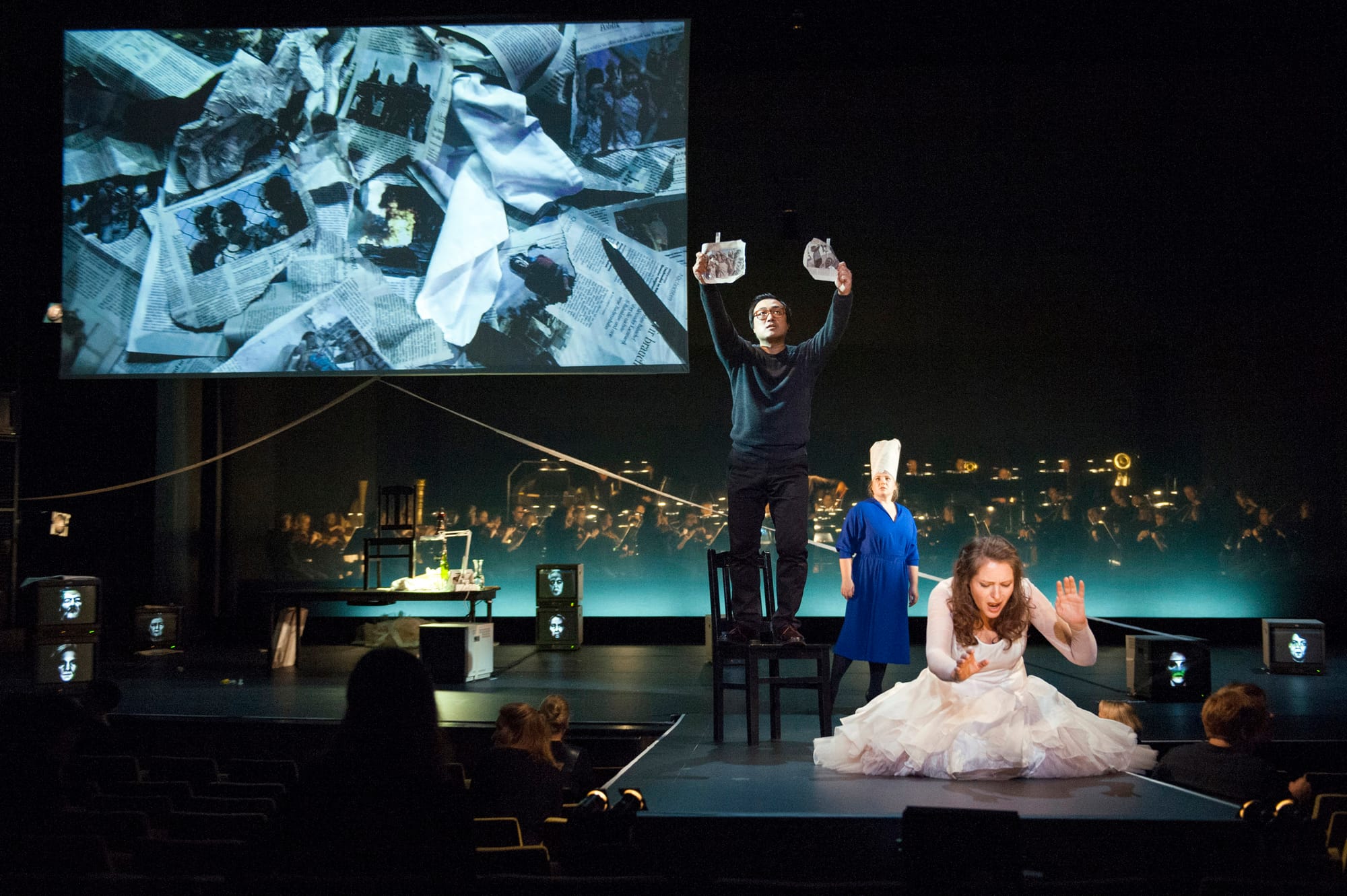
I tend to enjoy these kinds of deconstructions, especially with an opera as familiar and well-worn as Aida. There’s something refreshing in the challenge to re-see, re-hear, re-feel. The spatial scattering—already familiar from the director’s Matthäus-Passion—once again captivated me. Vocally, too, this was an excellent evening, with strong performances across the board.
That said, I found myself struggling to pin down the exact narrative architecture. I could intuit the allegory—yes, Aida as the structure beneath a crumbling relationship—but I was never entirely sure how the characters connected to one another on stage. The ambiguity of whether Aida was real or imagined left the emotional stakes diffuse. At times, it felt as though I was watching an abstract meditation rather than a story.
Still, perhaps that’s the point. In refusing to answer questions, this Aida asks better ones. What does it mean to lose someone? What happens when memory becomes more real than the present? And when history—be it personal or imperial—is always one step removed, what does it mean to live inside the echo? In that quiet collapse, something unexpectedly faithful to Verdi still survives.
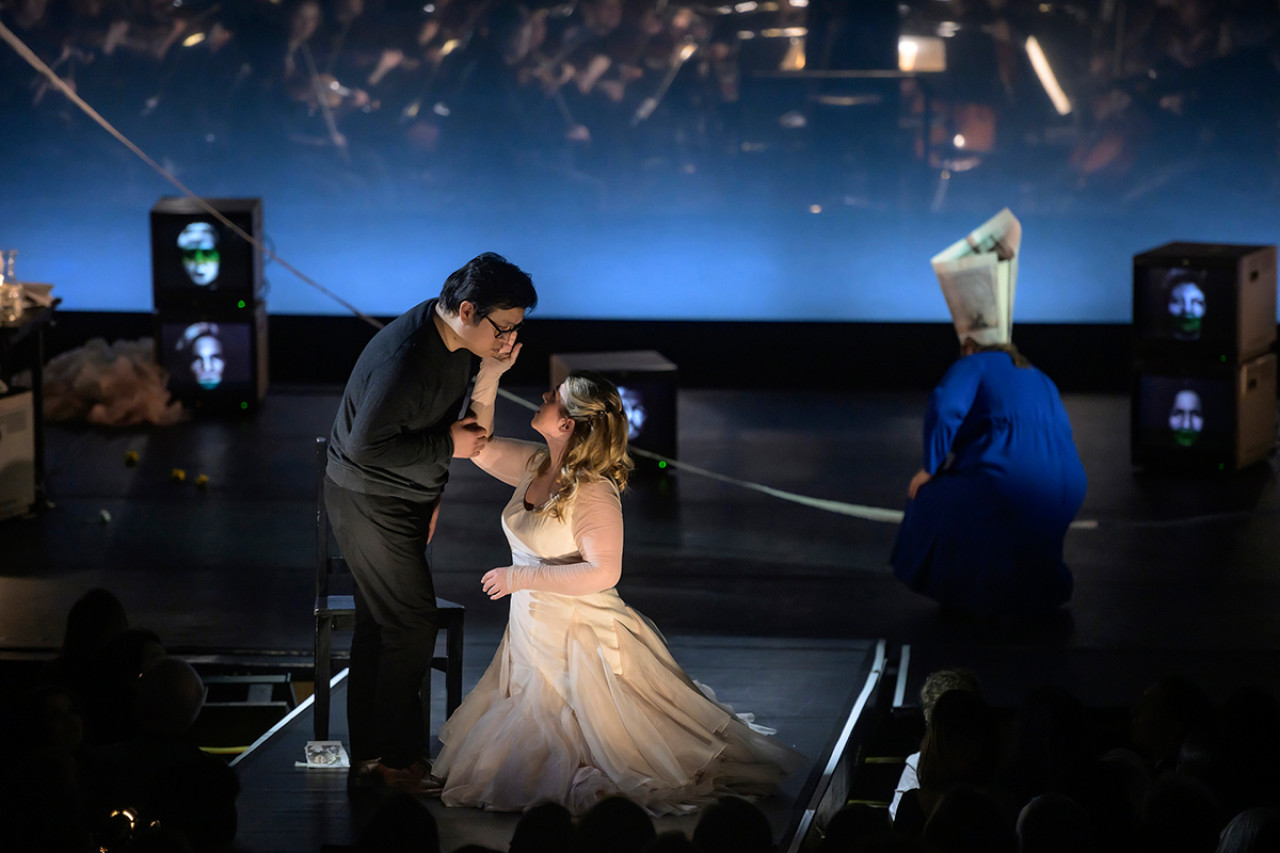
Cast - 22.05.2025
Conductor Paolo Arrivabeni
Stage Director Benedikt von Peter
Set Design Katrin Wittig
Costume Design Lene Schwind
Video Bert Zander
Chorus Director Jeremy Bines
Il re Tobias Kehrer
Amneris Judit Kutasi
Aida Christina Nilsson
Radames SeokJong Baek
Ramfis Byung Gil Kim
Amonasro Michael Bachtadze
Un messaggero Thomas Cilluffo
Una sacerdotessa Sua Jo
Chorus Chor der Deutschen Oper Berlin
Orchestra Orchester der Deutschen Oper Berlin

